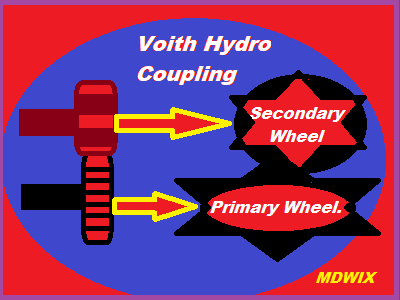Interactive Study on Different Types of Human Body Organs and Systems.
 |
| MDWIX |
Human body is an assembly of different organs and systems working in harmony as per protocol of biological engineering. Each system has specific role to contribute overall health and functionality. In this session we shall discuss about the major systems associated to human anatomy. Sometimes scholar may forget to memorise the whole organ systems so MDWIX has made a facilitation technique to easily understand and recapitulate the all organs name in single string, RIMCLENDERS that is memorable word. Now we can elaborate each word to a specific system as follows:
1) "R" stands for Respiratory System.
2) "I" Stands for Integumentary system.
3) "M" Stands for Muscular System.
4) "C" Stands for Circulatory System.
5) "L" Stands for Lymphatic System.
6) "E" Stands for Excretory System.
7) "N" Stands for Nervous System.
8) "D" Stands for Digestive system.
9) "E" Stands for Endocrine System.
10) "R" Stands for Reproductive System.
11) "S" Stands for Skeletal System.
Now we gradually explain the system briefly as below.
Respiratory System: It works on exchange of Oxygen and carbon Di oxide. It has a vital role in maintaining blood pH. Respiration is a major factor of life survival. Oxygen is required for metabolism and carbon di-oxide is a waste products of metabolism. respiratory system executes the process of oxygen inhaling and carbon di oxide expulsion.
Integumentary System: Major function of this system are providing sensory information, regulates temperature and protects body from external damages. It is an intricate and vast system that covers major parts of human body. This system include not only skin but also nails, hairs and various gland.
Muscular System: Muscular System is an intricate organ system for human body. It controls and enables body movement through contraction. It maintains heat balance and postures of human body.
Circulatory or Cardio Vascular system: It circulates oxygen, foods ingredients, nutrients, hormone and enzyme to body cells for metabolism and growth of cell and removes bi products and carbon di-oxides from the cell. This system is consisted of heart, a muscular pump, a series of blood vessels including vein, arteries and capillaries.
Lymphatic System: It is a complex network for maintaining fluid balance in human body. It also plays important role to absorb fat from digestive tract and contributes to immune systems.
Excretory System: It is also called unitary system. It is mainly a filter unit. It filters blood to remove waste and bi-products from body system. It regulates blood volume & pressure. It plays a vital role in body's chemical balance.
Nervous System: It controls and process sensory information, controls response and co-ordinates bodily functions. Nervous system is consist of nerve tissue or neuron, brain and spinal cord. All these element controls sensory input and output signal. It governs the basic aspects to complex behaviour and cognition.
Digestive System: This system breaks down food into easily absorbable state and eliminates wastage or unused portion of food items. It consists of vast and complex system including mouth, esophagus, stomach, liver, gallbladder, small and large intestine, pancreas and rectum. Each component has specific role for digestion, absorption and rejection.
Endocrine System: This is an important and vital system to produce chemicals messenger like hormone and enzymes that are responsible to regulate metabolism, growth and reproduction. This system is consisted of different glands and ducts that excretes hormone direct into bloodstream
Reproductive System: This is system is dominated in adulthood. It produces reproductive cells and tissues, hormones. It supports off-spring development in female. In female body reproductive system is responsible for production, nurturing and transport of gametes necessary for fertilization. In male reproductive system is with major parts of testes. it produces sperm & male gametes.
Skeletal System: It provides structural supports. It facilitates body movement. It also stores minerals and produces blood cell. Primarily skeleton system provides structural support and physical shape to human body. For this reason, human being can stand upright, move three dimensionally to perform daily activities. The skull and other skeletal system protects internal organs and system from external damage.
Thanks for your interest to MDWIX Academy. Please visit again.
===============================














0 Comments